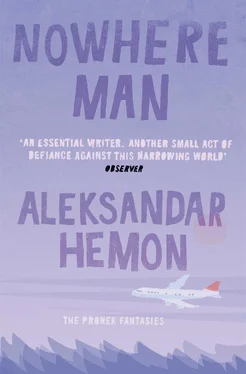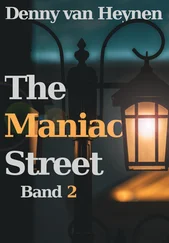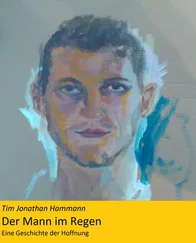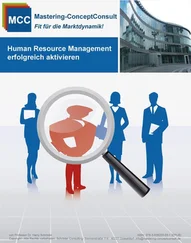We would head toward breakfast, down the stairs in synchronized steps, his hand on my shoulder, lodged gently on my collarbone. Seldom would we be alone at the table — all of a sudden he had an army of friends — which forced me into reticence or, worse, into nonsensical utterances, all sounding like pretentious misquotations: “Everybody knows someone dead”; “Words are grown so false that I am loath to prove reason with them.” Jozef would indulge in dalliance and glance-exchange with Andrea (“You had nice dreams?”), which would always make me recall his erection; he would tease Father Petrol (“You dreamed pretty women?”), which would make Father Petrol’s pimples sinfully purple; he would greet the Polish teenage twin brothers, who had been following Father Petrol like a double dose of temptation (“You switched names last night?”); he would provoke Vladek, asking him what kind of information he provided to the KGB (“Tell them I am spy”); he would make a crass remark to Vivian, whom he didn’t seem to like because she was a vegetarian (“I have sausage for you”); he would even address Will, reading the International Herald Tribune he brought with him (“What are news?”); and he would embarrass Tolya and me, suggesting that we could “make love” after breakfast. We all revolved around the axis of Jozef’s morning mirth, and the revolution could make you nauseated.
After breakfast, we were expected to go to classes and expand our knowledge of Ukrainian history and culture. I usually skipped the Ukrainian language classes, but I went to the Ukrainian history class, much with the same interest that would make me gawp at a train wreck, but also because Jozef was in the class. We would sit high in the amphitheater, almost at eye level with the solemn pictures of Marx, Engels, and Lenin, looking down at Vivian’s emaciated back as she took notes, looking at Will’s persistently raised hand, and at a puny Toronto professor who had written a thousand-page book on Ukrainian history. I made intermittent notes, chiefly out of graduate school habit, while Jozef frantically drew herds of butterflies and demented rectangles. I was raised with my father’s version of Ukrainian history in which frequent and regular defeats were in fact triumphs of martyrdom; in which feeble intellectuals and hesitant politicians misled the common man and betrayed the hero; in which pogroms were merely self-defense; in which Ukrainians preserved Orthodox Christianity from Poles and Communists. “Empty story, yes?” Jozef said. He liked the empty story about the Cossacks throwing mud at their elected chief as part of the inauguration ritual. He thought that everybody should do it, and add some shit to the mud too. Once, as the Ukrainian SS division was being wiped out by the Red Army in its first and only battle, our knees touched, and a little furry animal of troubling pleasure moved for the first time in my belly, but I quickly smothered it with the soft pillow of denial.
In the evenings, we would go out, stroll by the Dnepro, while the greatest fleet of mosquitoes ever assembled attacked us, wave upon wave, some of them resembling small storks — it was hard not to think of Chernobyl, and evolution taking a different turn in these parts. We would embark upon a quest for beer, up and down Andriivski Uzhvis, usually ending up in an Armenian restaurant, frequented by all the other foreigners in Kiev. Once the entire school crowd went to the restaurant and ordered a whole piglet — Jozef’s royal idea. He delightfully gnawed on the bones, greasing up and licking his fingers, daring everyone to try the brain, and no one dared except Andrea. (Vivian paled at the far end of the table.) I retch at the very thought of eating pig’s brain, but they put the decadent morsels into each other’s mouths with delight. Strange is the taste of desire.
We would go back to the dorm and drink in someone’s room, cheerfully exchanging funny anecdotes, talking over each other, though I cannot remember what about. Jozef would disappear to make out with Andrea, and I would be stuck with a ranting-in-Russian Vladek, whose idea of fun was to drink vodka out of a vase; with Father Petrol, who would pontificate (mainly to the twins) about the spirituality of beekeeping; with Vivian, who was somehow always sitting next to me, trying to commence a quiet conversation about bad food or the water shortage in the dorm. I would depart only when I was sure that Jozef was not in our room with Andrea, quietly humping in the darkness, while a moonbeam sneaked into the room and tickled his bare dolphin-like back.
—
One day, all the Americans in the school were summoned to Igor’s office. I cannot say that the possibility of a summary execution of the imperialist enemy did not cross my mind, but I went nonetheless. There were six of us: there was Will, with his flaxen hair, half-open mouth, and undergrowth of blond hair on his tight forearms — he in fact came with a tennis racket in his hand. There was Mike, whom I hadn’t ever talked to, from Schenectady, with a large Slavic head and an itch in his crotch, to which he responded by constantly touching his penile area (“You play tennis?” he asked Will). There was Vivian the Vegetarian, with her translucent skin and knobby joints. There was Andrea, with her rangy Chicago prettiness, freckles and all (“You’re from Chicago too?” I asked her. “Yup,” she said, and that’s all the conversation we had). There was Basil from Baltimore, with thin-rimmed spectacles, positioned at a studied equidistance from anyone, and a stack of money neatly held together by a silver clip — he was a banker (“I am a banker,” he said). And there was me, a graduate student, mired in the middle of a project called “Queer Lear.”
Thus, in streaming bad English, spoke Igor: the American president George Bush was coming to Kiev for a goodwill visit. The people of Ukraine wished to welcome and accommodate the American president, because the people of Ukraine had a lot of respect for the American president, and they wanted to develop friendship with the American people, and so on in a portentous voice. He said we were needed, since we could speak Ukrainian and English, to be on hand as interpreters. “Sure,” Will said instantly. “I’ll be proud to serve my country,” Basil said. “Bush is a prick,” Andrea said. “No way I’m gonna do it.” Then Vivian and Mike agreed, and it was up to me. The way I remember it, which is most certainly inaccurate, is that they all turned toward me, in slow motion, tilted their heads slightly — it took me a few long moments to decide. I am one of those people who is always a little embarrassed to stand up and turn toward the flag at a baseball game, though I always do it, my father’s invisible hand pushing me. And I never thought that my brother’s death was quite worth it. But it was different now: there were these people in a foreign country and I knew them — we were a “we.” I was tired of confusing, unrelenting perceptions and feelings. I wanted to go to a familiar place. I said: “Okay,” and avoided Andrea’s gaze.
A bus was supposed to pick us up Thursday. We would be accompanied by a person from the consulate. Igor thanked us very much and told us how important it was that our school could be part of the historic visit. Igor had no shoes on, just snow-white socks, except for a red blot on his left foot, suggesting that his big toe was painfully bleeding.
But there was throats to be cut and work to be done: we boarded a humble bus, with smudges on the window panes probably predating Brezhnev. And in that decrepit ark we sailed together with other unnamed Americans, collected around Kiev, who all sat in the front seats. We were heading to the airport, we were told by a red-haired young woman in a neon-blue suit. She was from the consulate, her name was Roberta, and she said she was delighted to see us, but then she instantly forgot us, firmly focused on the Kiev streets ridden with potholes and her goals — say, a position in the Moscow embassy and an affair with a good-looking CIA man. I liked the way she raked her fluffy hair with her carmine claws.
Читать дальше












